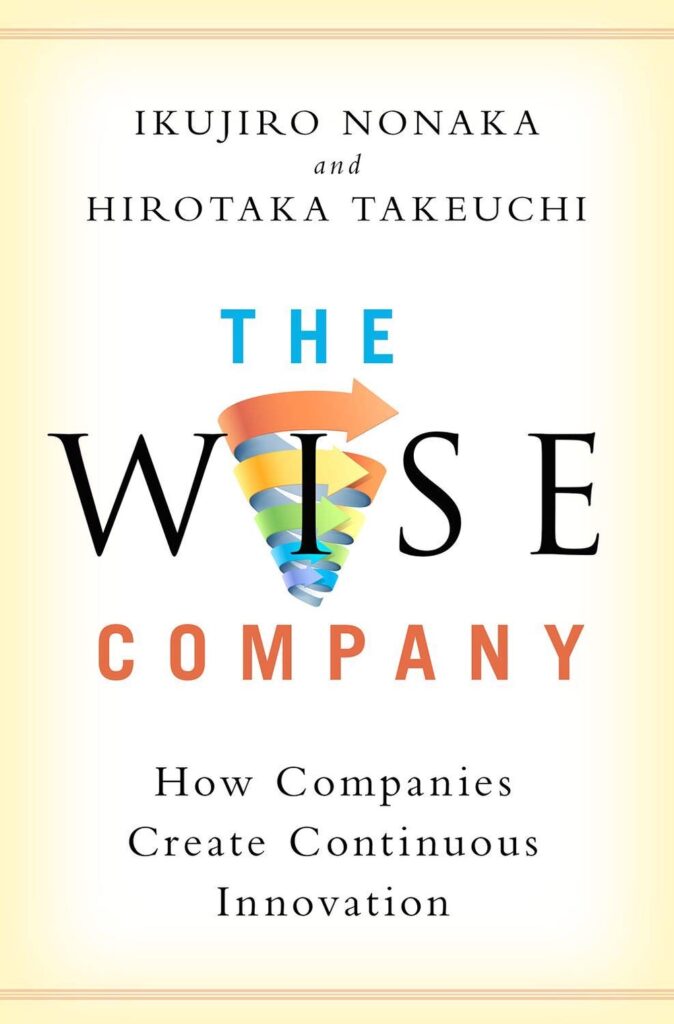Sharing my learnings from the book, The Wise Company by Ikujiro Nonaka & Hirotaka Takeuchi
The Wise Company by Ikujiro Nonaka & Hirotaka Takeuchi
High-velocity change is the fundamental challenge facing companies today. Few companies, however, are prepared to continuously innovate—because they focus on the short-term and do not emphasize the wisdom needed to make sure that their interests are aligned with those of society.

- running a wise company is more than just profit. It’s about knowing your environment and customer needs on a more personal level
- We should focus on how to use knowledge more wisely: explicit (statistics and data) & tacit (insights you gain through experience)
- 3 main problems of companies:
- many are over-reliant on explicit knowledge
- companies must think about the future they want to create
- the need for wise leaders
- rather than just obtaining valuable knowledge, we should focus on practicing the knowledge we have gotten
- phronesis is the kind of wisdom that serves as the basis for practical action. It’s about action, context, goodness and purpose
- phenomenology means actions we take now directly shape the future. These actions are dictated by tacit knowledge
- Companies are social institutions. Their actions influence society and vice versa. If the company has a benefit to offer, then society is likely to embrace it
- part of being a wise leader is knowing how to grasp the essence (assess/articulate/act on questions such as what is happening now? What are the future consequences of plan A or B?)
- human interaction is crucial for wise leaders to generate new ideas
- a company will only be successful if everyone is onboard it’s the same purpose. Wise leaders communicate their purpose through stories and metaphors
- sometimes it’s necessary for wise leaders to use politics to rally and motivate the company
- wise leaders need to share their passion, inspirations and knowledge through mentorship, apprenticeship and encourage leadership distribution


Leave a Reply